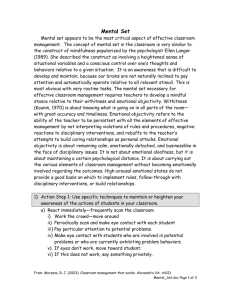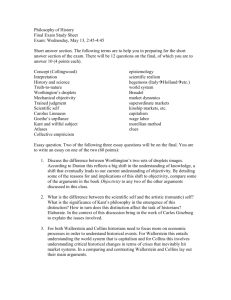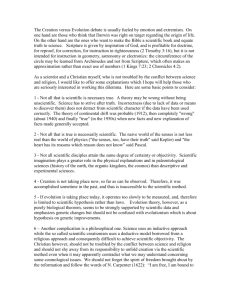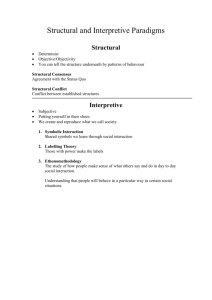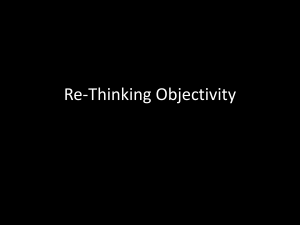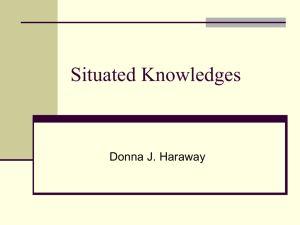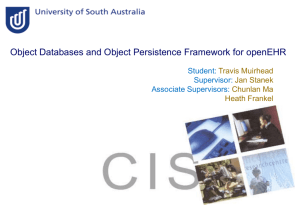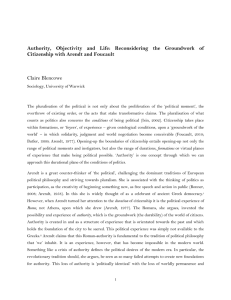Objectivity in Journalism
advertisement
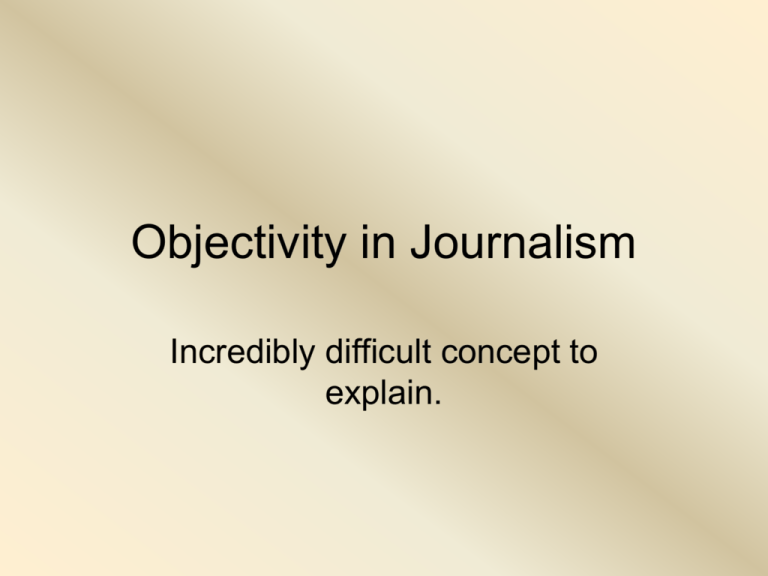
Objectivity in Journalism Incredibly difficult concept to explain. Objectivity in the 1900’s Objectivity meant different things in the 20th century than it does now. Back then – in a world where newspapers were simply awesome and there was no television – objectivity was the publishing of ‘unbiased’ facts. •Muckrakers •Helping community •Rarely political Objectivity is seen by most journalists as “old-fashioned and outdated”, stereotypically “dishonest and misleading” (which, stereotypically, it is), and unwanted by the public. The meaning of objectivity has been twisted: •Claim to tell the truth and nothing but the truth. •Twist the truth or only tell half the story •Secretly biased •He said/she said stories that never get to the truth. •“pushing self-interest rather than the broad public interest” And this is what most critics say about objectivity (and some examples): •“the journalistic convention that news should be objectively reported creates an especially fertile opportunity to spin the truth.” •“people – especially young people – don’t want objective news anymore.” •“The news…is a case of seeing not what was, but what men wished to see.” (quote from Walter Lippmann when he concluded that the New York Times’s coverage of the Russian Revolution had been twisted.) VNRs (video news release) VNRs are what the author calls “a stealth bomb of journalistic dishonesty.” These are the kind of reports seen on local television news. We’re loosing newspapers to these VNRs because they are cheap, believable and they look like objective journalism. The problem is in most cases, the VNRs don’t tell the whole truth. The author also said that, “local news professionals defend the use of them by saying they are no more misleading than the printed press releases, which is true.” The ‘abortion statistics’ Pro-choice articles • 64.4% of unmarried women get abortions •93% of women get abortions for social reasons. Pro-life articles • 80% of unmarried women get abortions •47% of women with unintended pregnancies get abortions TRUE OBJECTIVITY (in the words of this particular author) The author is trying to redefine objectivity as the way it was in the 1900’s. • Not-following-the-flow kind of stories • Spilling info that can benefit the public despite the feelings of your sources • The lack of political point of view in papers • The journalist isn’t objective, the method is (scientific method) • “a state of mind that begins with the belief that a journalist’s obligation is to the truth” • Serving the community, not the crazies Only Human We can never get the whole truth, because added to our own biases, even the people that we interview have biases and sometimes lie and spin the truth. We’re all human and we can never be perfect because of our nature. So, if we can never get the truth in stories, then what? •Objectivity is something to strive for – not something to be consumed by nor something that should be ignored. •If it doesn’t benefit the public in any way, why put it in? •If it does benefit the public and you don’t like it, put it in anyway =) Corruption Brews!! It’s one thing to learn how to strive for objectivity in writing, but we should also protect ourselves from false news reports. Some stories can really get under our skin just by journalists doing some things like… •Depicting a topic a certain way by adding in their own bias •Succumbing to rumors •Feeding the ‘extremist’s’ fire by being overly passionate in writing And sometimes we turn out like this poor fella when we’re consumed with these lies. In a basic sense, the author feels like we are loosing newspapers because of many reasons: •Some readers feel as though they can’t trust the news anymore to tell the truth •Some readers don’t want news anymore, they want more opinion. •Television news programs have become more popular because they are cheap, require no work, and are believable.
